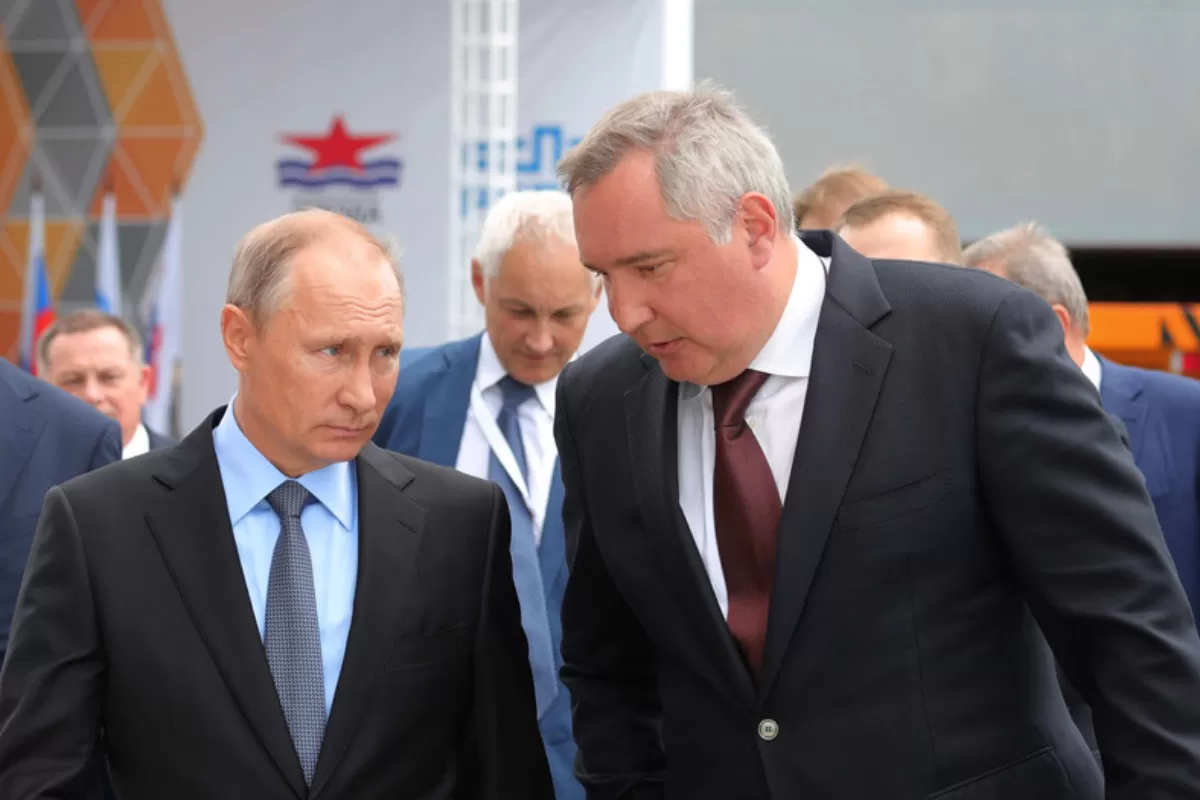
The former deputy prime minister and envoy of the Kremlin to Moldova and Transnistria, Dmitry Rogozin, drew a parallel between the hijacking of the plane from Belarus, which had the journalist and activist Roman Protasevich on board, and his situation in July 2017, when he was on the list of Russian officials sanctioned by the EU for the annexation of Crimea and the war in Eastern Ukraine, and was therefore not allowed to land on EU territory or fly over its airspace.
NEWS: Roscosmos chief Dmitri Rogozin called Poland and Romania "air pirates", recalling the situation in 2017. Dmitri Rogozin, the head of Rosscosmos, commented on his Telegram channel RIA Novosti's message according to which the Polish prime minister insists on a ban on flights by Belarusian airlines into the EU after the incident involving the Ryanair plane that landed in Minsk on Sunday.
“Poland and Romania have been engaged in aerial piracy for a long time”. “You cannot name such dangerous and illegal actions otherwise”, Rogozin wrote.
This is how he described the situation in the summer of 2017, when a S7 passenger plane, having on board a government delegation of which Rogozin was a member, at the invitation of the President of Moldova, was flying to Chisinau, and was not allowed to enter Romania’s and Poland’s airspace and landed in Minsk. "And this despite the fact that, through diplomatic channels, the authorities over which the flight route passed, were informed in advance of the visit of the delegation of the Russian government," Rogozin was quoted as saying by Sputnik.
"[…] The Ryanair plane, which was flying from Athens to Vilnius, made an emergency landing at Minsk airport on Sunday due to a message about a bomb, so demining teams came to the scene. The information about the bomb threat has not been confirmed, the Belarusian Inquiry Committee has announced the initiation of a criminal case based on a false report about the mined plane.
Human rights defenders in Belarus reported that Roman Protasevich, the founder of the Telegram channel Nexta and editor-in-chief of the channel "Belarus Gogolovo Moss", known as extremist, was on board the plane and was detained at the documents check-point at Minsk airport. Protasevich was included in the Republic on the list of individuals involved in terrorism ", Sputnik also writes.
NARRATIVES: 1. The West has been practicing this type of "air piracy" that it accuses Belarus of for years 2. Romania and Poland, the main states on which NATO relies on the eastern flank, commit abuses against Russian officials. 3. The Ryanair plane landed due to a bomb threat and it was its crew that chose Minsk, although it could have opted for another destination.
CONTEXT: Rogozin's statements come in the context in which, under the pretext of a bomb threat aboard the Athens-Vilnius flight, the authorities of the dictatorial regime in Minsk led by Aleksandr Lukashenko forced a Ryan Air aircraft to land in Minsk. This is how the arrest of Roman Protasevich, a Belarusian journalist and activist, the founder of the Nexta channel, which operates on the Telegram social network, was planned and executed.
He lived in Poland, running the Nexta company, which broadcasts images of the Belarusian regime's abuses and is the most popular source of information about what is happening in Belarus now.
According to the Minsk authorities, after receiving the alert, the pilot was not forced to land in Belarus, but could have chosen either Ukraine or Poland, depending on the weather and fuel reserves.
Ryan Air, on the other hand, says that the agents of the Belarusian political police, who kept the acronym from the Soviet era, the KGB, were already on board since Athens. They argue that the plane was forced to land in Minsk by a MIG fighter jet of the Belarusian Army.
Accused of extremism and the organization of mass riots, Protasevich could risk the death penalty. US Secretary of State Antony Blinken called the incident shocking and demanded the immediate release of the journalist. NATO Secretary-General Jens Stoltenberg has also stated that the incident is serious and dangerous and called for an international investigation.
Several airlines are currently boycotting Belarus' airspace after the European Council called for it.
WHY THE NARRATIVES ARE FALSE: Rogozin operates with sophistry and half-truths. His case is not at all similar to that of Protasevich in Belarus.
Specifically, in late July 2017, Rogozin tried to force the EU airspace, where he was banned, trying to camouflage a visit to Chisinau through a regular Moscow-Chisinau flight.
Rogozin knew he would violate EU sanctions, while in Protasevich's case the plane was hijacked into Belarusian airspace under an alleged bomb threat.
Similarly, in 2017, when approaching Romanian airspace, the aircraft only received a ban on flying over Romania, given that Rogozin was on the list of Russian officials banned in the EU after the annexation of Crimea by Russia in the spring of 2014. Rogozin knew this but tried to defy EU sanctions and force a scheduled flight over EU airspace.
Moreover, Rogozin had already been in a similar situation in 2014, when he was also denied entry into Ukrainian airspace. Then too Rogozin tried to lie, saying the incident did not occur because of Ukraine's sanctions for annexing Crimea. He then wrote on his Twitter account that, at the request of the USA, Romania closed its airspace for his plane. “Upon U.S. request, Romania has closed its air space for my plane.” “Ukraine doesn’t allow me to pass through again. Next time I’ll fly on board TU-160” Dmitri Rogozin wrote on his Twitter account in English.
Check sources:


